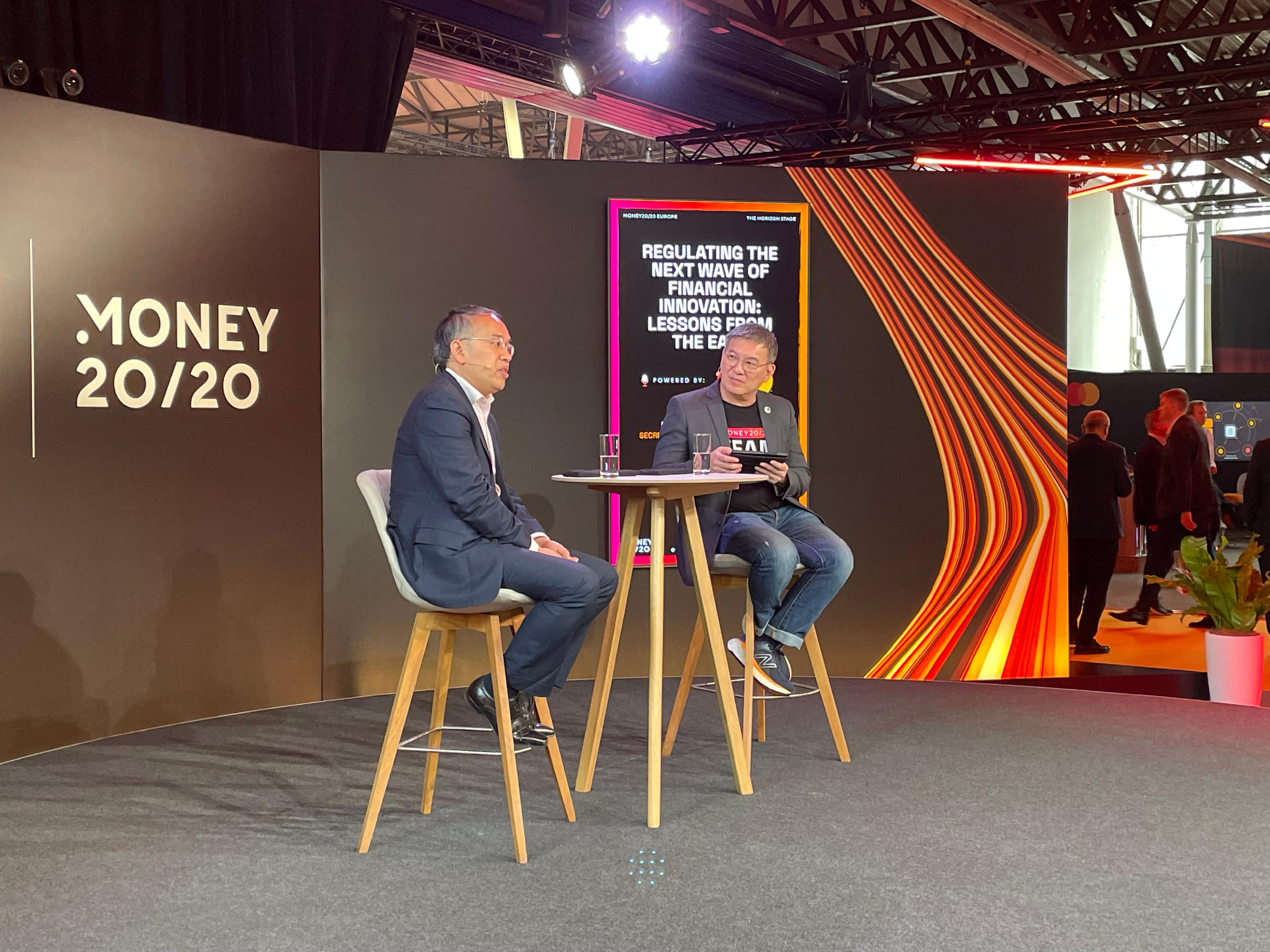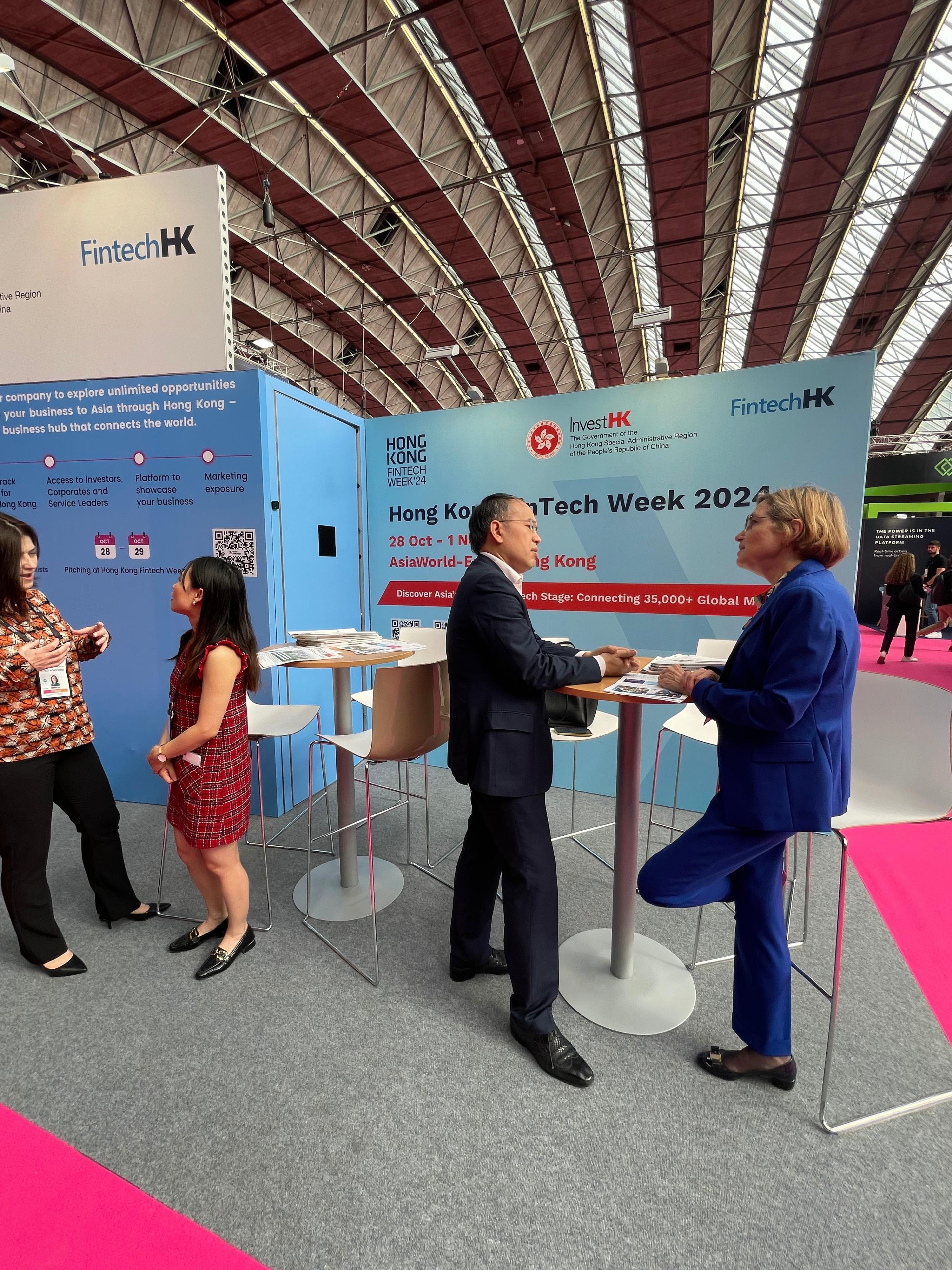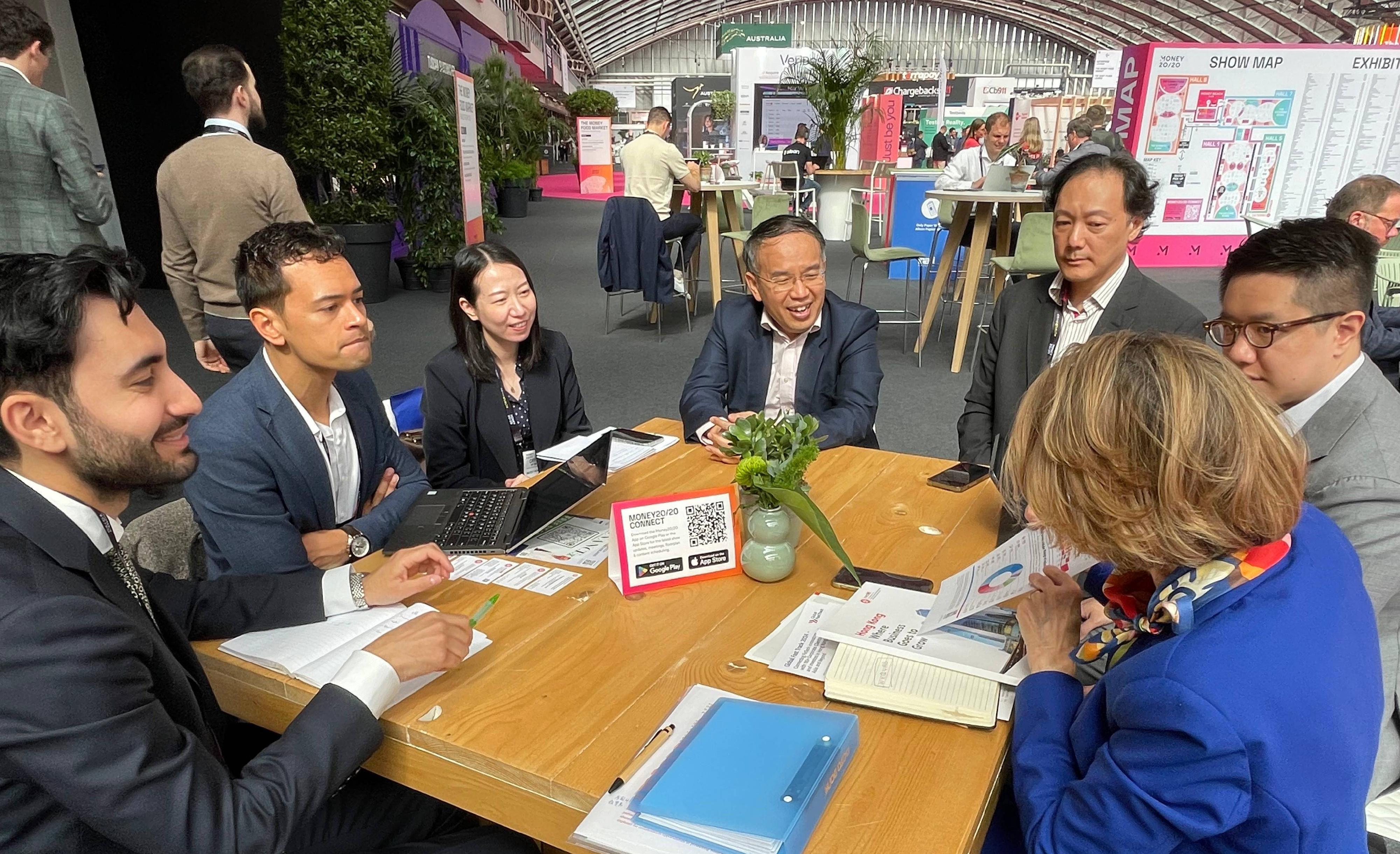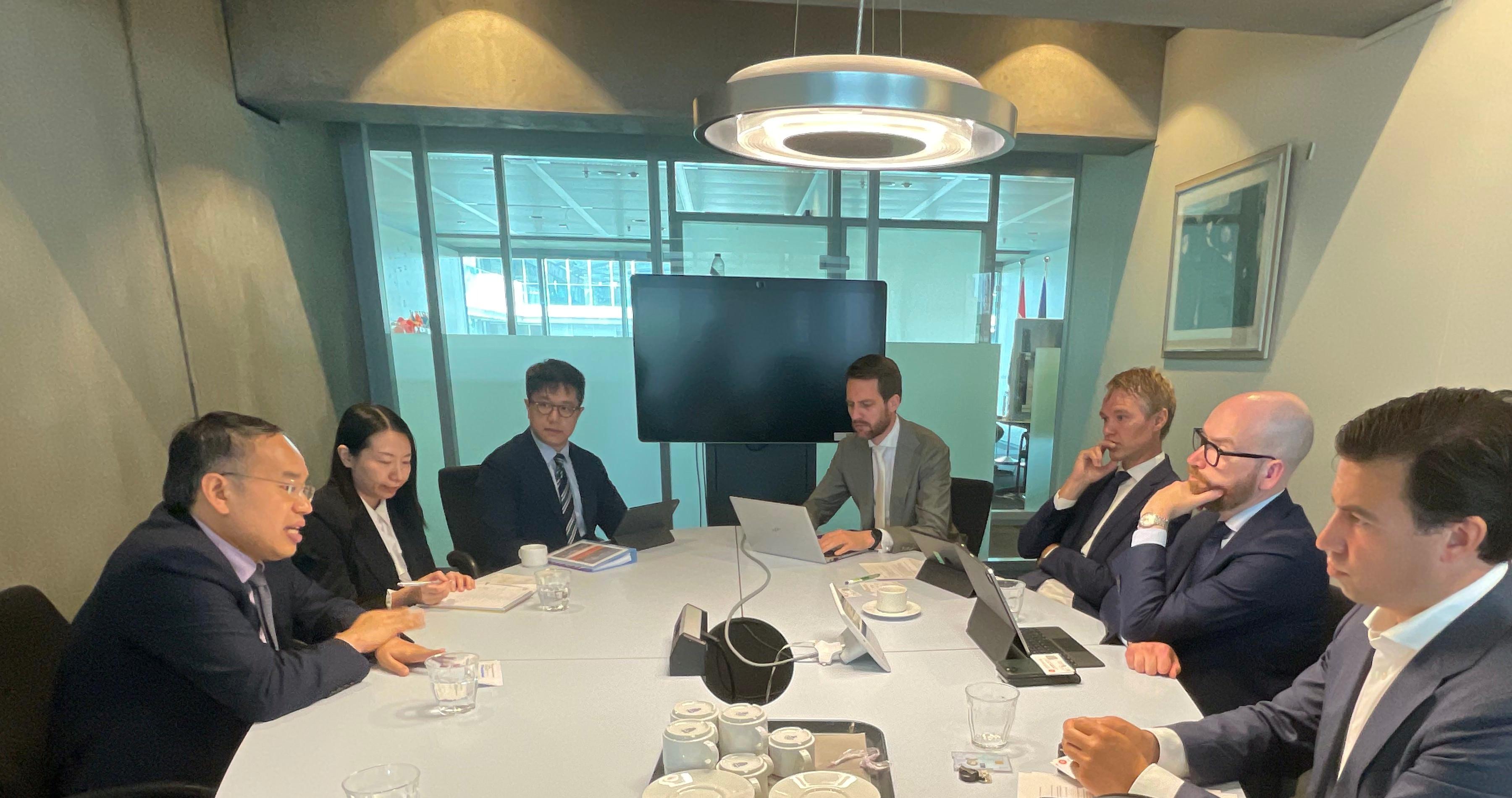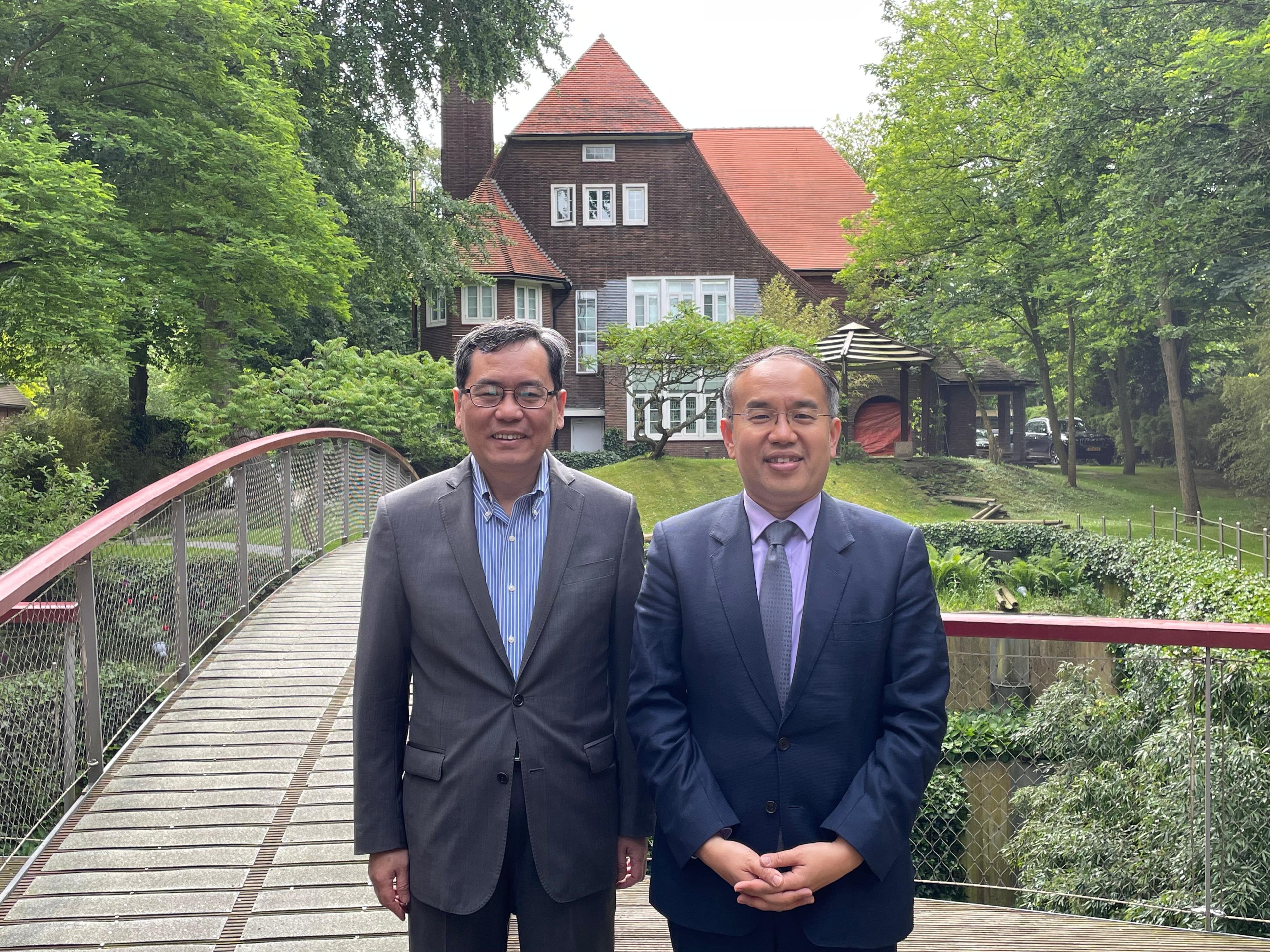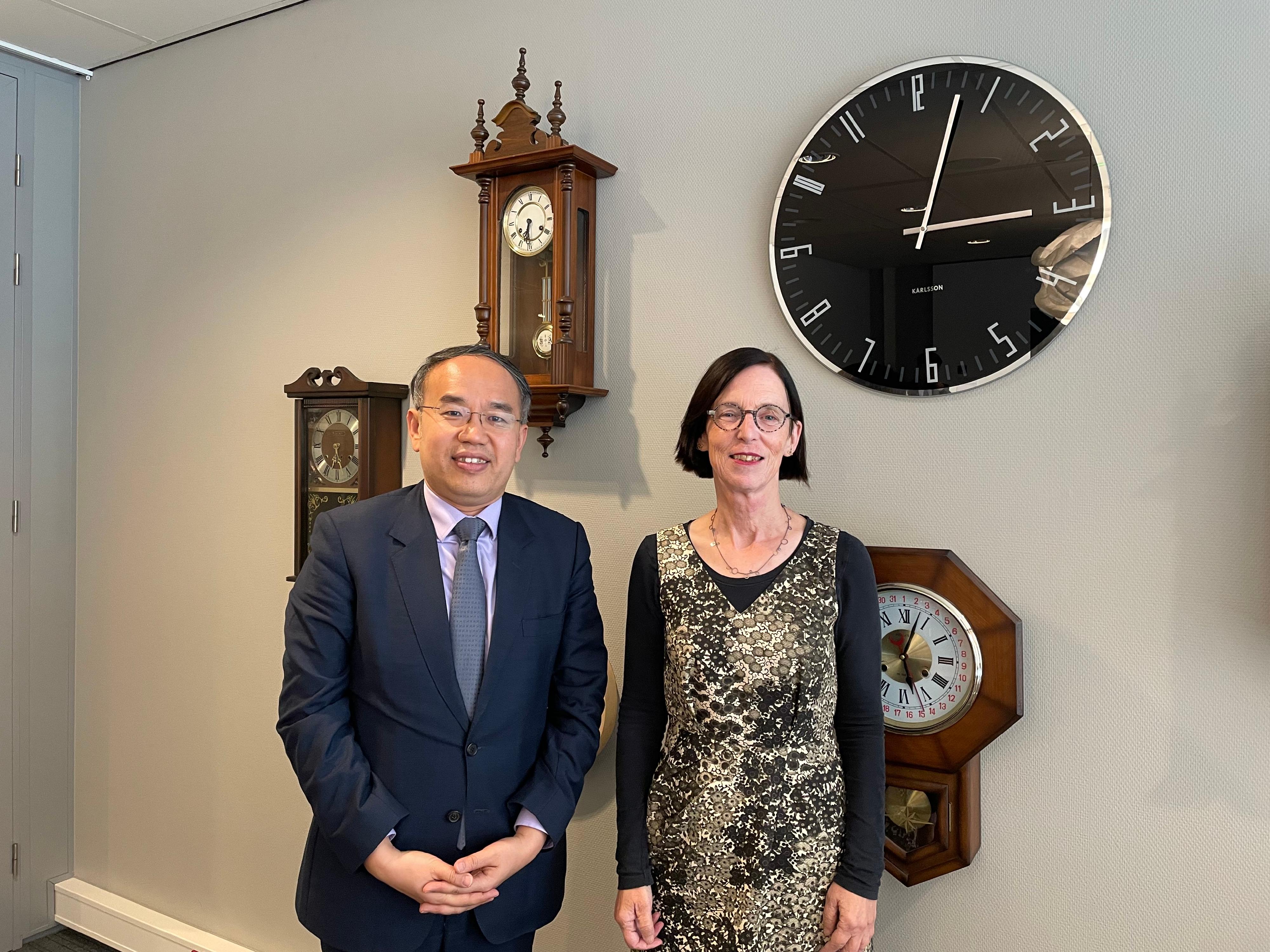SFST promotes Hong Kong's Web3 ecosystem and meets senior financial officials in Netherlands (with photos)
******************************************************************************************
Mr Hui participated in the fireside chat "Regulating the Next Wave of Financial Innovation: Lessons from the East" at Money 20/20 Europe on June 4 (Amsterdam time). He focused on Hong Kong's initiatives including tokenisation of real world assets and payment, and how they could be applied to companies/institutions around the world.
Mr Hui said the Hong Kong Special Administrative Region (HKSAR) Government took the global lead in issuing two batches of tokenised green bonds. The first batch issued in February 2023 was the first government green bond issued by tokenisation in the world. The second batch, a multi-currency (Hong Kong dollar, Renminbi, euro, and US dollar) bond issued in early 2024 and amounting to US$770 million, was the first multi-currency government green bond issued in a digitally native format globally. The second issuance included multiple innovations that broadened investor access, supported interoperability, and improved transparency and efficiency. The issuance also attracted subscription by a wide spectrum of institutional investors globally, from financial institutions (including some major asset managers, banks and insurance companies) to non-financial institutions.
Talking about sustainable development, Mr Hui highlighted that in March this year, the HKSAR Government issued a vision statement on developing the sustainability disclosure ecosystem in Hong Kong. The Government and financial regulators aim for Hong Kong to be among the first jurisdictions to align the local sustainability disclosure requirements with the International Financial Reporting Standards - Sustainability Disclosure Standards (ISSB Standards), showcasing to international investors and markets Hong Kong's commitment to reinforcing its leading position on the international sustainable finance map.
On payment, Central Bank Digital Currencies (CBDCs) and stablecoins are reshaping global finance. A collaborative effort led by the Digital Currency Institute of the People's Bank of China, the Hong Kong Monetary Authority, the Bank of Thailand, the Central Bank of the United Arab Emirates, and the Bank for International Settlements Innovation Hub is advancing the mBridge project, which is the largest cross-border central bank digital currency project to date and is expected to provide a low-cost and fast payment method for international trade settlement. By participating in the mBridge project, Hong Kong can continue to work closely with the Bank for International Settlements and other central banks to expand and deepen research on central bank digital currencies, thus helping Hong Kong apply new financial technologies to cross-border payments.
The public consultation in Hong Kong on the legislative proposal to regulate issuers of stablecoin has been completed recently. The legislative proposal is an important measure facilitating Web3 ecosystem development in Hong Kong. Mr Hui noted that with the relevant licensing, supervisory and enforcement parameters in place, the actual and potential risks associated with stablecoin development in Hong Kong could be properly managed in line with international standards.
At the fireside chat, Mr Hui also encouraged fintech, digital assets and Web3 companies to visit Hong Kong for first-hand experience of the city's vibrant ecosystem and opportunities of mutually beneficial collaborations.
On the sidelines of Money 20/20 Europe, Mr Hui met separately with the top management of Netherlands Foreign Investment Agency and a partner of a venture capital firm. During the meetings, they shared their experiences in building a sustainable Web3 ecosystem, and explored the collaboration opportunities in promoting fintech.
On June 3 (the Hague time), Mr Hui met with the Deputy Treasurer-General and Director Financial Markets, Ministry of Finance of the Netherlands, Mr Joost Smits, in the Hague and the Chair, Dutch Authority for the Financial Markets, Ms Laura van Geest, in Amsterdam. During the meetings, they discussed issues of mutual concerns such as the provision of a sound financial regulatory system for healthy and sustainable market development, as well as policies related to bond issuance.
Mr Hui also paid a courtesy call on the Chinese Ambassador to the Netherlands, Mr Tan Jian, in the Hague. Mr Hui told Mr Tan that both Hong Kong and the Netherlands attach great importance to sustainable economy as well as innovation and technology, and Hong Kong can make good use of the unique advantage of "one country, two systems" to play its bridging role and leverage the development of the Greater Bay Area as the entry point to promote co-operation between the Netherlands and the Mainland, so as to better integrate into the overall development of the country.
Mr Hui, on the same day, had a dinner gathering with heads of fintech, wealth management, and IT companies as well as relevant trade associations in Amsterdam. Mr Hui exchanged with them Hong Kong's latest financial innovations for a sustainable Web3 ecosystem, as well as the strengths in providing diverse channels for asset allocation, particularly the initiatives in developing family office business.
After completing his visit to the Netherlands, Mr Hui departed for Madrid, Spain, to continue his visit.
Ends/Wednesday, June 5, 2024
Issued at HKT 11:40
Issued at HKT 11:40
NNNN





